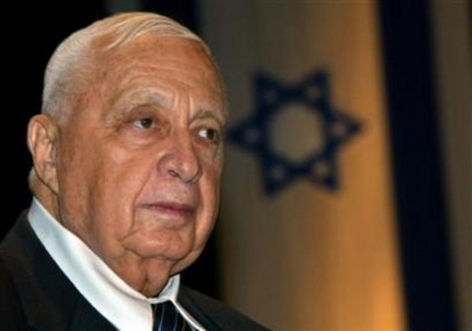Netanyahu Quits Over Israeli Gaza Pullout
Benjamin Netanyahu, a former Israeli prime minister who had been serving as finance minister, resigned today in a dramatic stunt to protest the pullout from settlements in the Gaza Strip.
Netanyahu Quits Over Israeli Gaza Pullout (AP)
Benjamin Netanyahu stepped down as Israel’s finance minister Sunday in a last-minute protest against next week’s Gaza pullout, but his stunned Cabinet colleagues pushed ahead and approved the first stage of the withdrawal plan just moments later. Netanyahu, a hard-liner and former prime minister with ambitions to reclaim the top job, acknowledged Sunday that he will not be able to stop the withdrawal. He said he resigned nonetheless because he fears the pullout will turn Gaza into a “base of Islamic terror” and endanger Israel.
In an immediate response, Israel’s stock market dropped 5 percent within an hour. Netanyahu had adopted a pro-business economic policy and cut welfare benefits in more than two years as finance minister. Prime Minister Ariel Sharon, trying to limit damage to the economy, announced he would stick to that approach.
The resignation could also force early elections; for now, the vote is set for November 2006. Netanyahu enjoys strong support in the ruling Likud Party, which largely opposes the pullout, and could try to wrest Likud leadership from Sharon in coming months as a step toward running for prime minister.
The 55-year-old Netanyahu had given no indication that he would resign, despite his zigzagging over the Gaza pullout in recent months. The weekly Cabinet meeting was already under way for several hours Sunday, with ministers about to give final approval to the first stage of the withdrawal plan — the dismantling of the isolated Gaza settlements of Morag, Kfar Darom and Netzarim. When it was Netanyahu’s turn to speak, he got up from his seat instead and placed a note on the table that he should be counted among those voting “no,” said Housing Minister Yitzhak Herzog of the centrist Labor Party. Netanyahu then gave Sharon the letter of resignation. When Cabinet Minister Tzachi Hanegbi of Likud asked Netanyahu for an explanation, the finance minister said it could be found in the letter, Herzog said.
“It was very dramatic in there,” said Cabinet minister Matan Vilnai of Labor. Vilnai said Sharon did not react.
Shortly after Netanyahu left, the ministers voted 17-5 to approve the dismantling of the first three settlements. Netanyahu’s note was counted as a “no” vote. In all, some 9,000 settlers will be removed from their homes in 25 settlements — 21 in Gaza and four in the northern West Bank.
Netanyahu later told a news conference he was conflicted because he had hoped to continue guiding economic policy, but could not lend his support to the pullout plan. “I cannot stop this (the pullout), but I can be at peace with myself,” he said.
While I do not doubt that this represents Natanyahu’s true beliefs, the timing–now rather than months ago when this was set into motion–suggests this was a stunt to draw attention to himself rather than an actual attempt to derail the policy.
Netanyahu is probably right that this pullout will not bring peace. Still, peace is inconceivable without such a pullout. Such are the dilemmas of this seemingly intractible situation.





